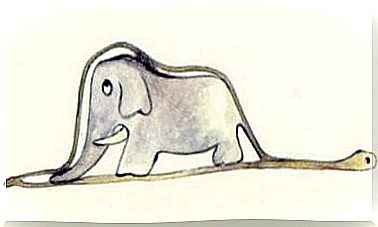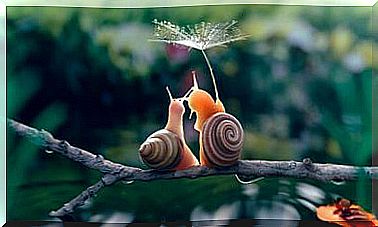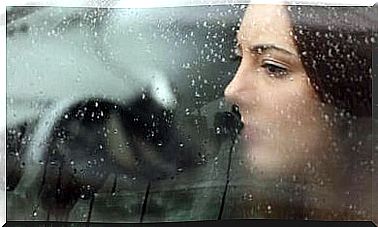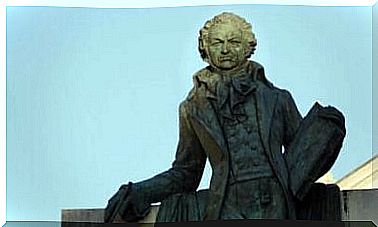Change Blindness Or How We Overestimate Our Visual Ability
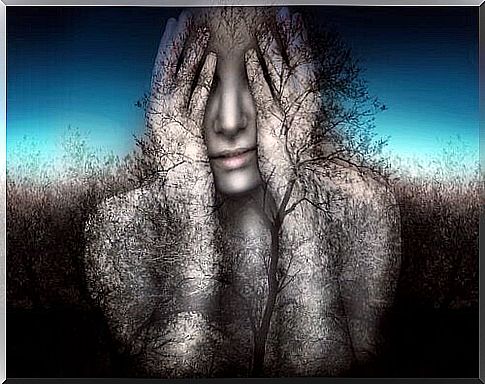
Changes are constantly occurring around you . These changes are important but seemingly invisible. As a result, we don’t realize they are happening. That is why it is said that people suffer from change blindness. We are too confident in our ability to detect visual changes.
To demonstrate this undue optimism about our ability to observe, we invite you to watch the following video. Will you be able to identify all the changes taking place in the video?
It’s unbelievable, isn’t it? Have you seen all 21 changes? Change blindness is an area in which scientists have expressed interest. That’s because it affects different areas and professions.
Speed and perspective
Ronald Rensink was the first person to describe our ability to detect changes in our visual field. In 1997, this psychologist noted that the phenomenon changed depending on whether the changes were introduced gradually or abruptly.
Moreover, he believed that the effect is greater when the changes are introduced during an interruption or during a panoramic shot. This is also the case in the next video.
Imagine you are watching a movie. Specifically, you’re watching a scene where a customer is talking to an employee behind the counter. If the seller bends over to pick something up and switches with another actor, you probably won’t notice the difference. How is that possible? Why not notice such an important difference?
Why do we experience change blindness?
One of the explanations for change blindness is that our minds naturally wander. In a phylogenetic way, we are programmed to preserve our cognitive and energy reserves as much as possible.
The brain is not a recording device that records and processes all the details and information it perceives. In contrast, the brain tends to focus on whatever we realize is most likely to change.
This selective attention is the result of experience and personal connection (Simons and Levin, 1998).
Let’s take the above scenario as an example. It is more likely that what changes is the item for sale (the seller takes that item off the counter).
The chance that one of the actors will change is small. So your brain assumes that the seller is the same person. That way they can save energy.
Selective focus
This phenomenon of change blindness is even more pronounced when you receive stimuli that grab and hold your attention. This also explains why you cannot remove your eyes from the weapon when witnessing an armed robbery.
In general, this image exhausts your attention reserves. So it leaves no room for other details. Watch this interesting video that talks about exactly this ability.
Illusionists or magicians often use this technique and “take advantage” of our change blindness. They know exactly where to hold our attention and when to perform their tricks. It really is an art to use this invisibility cloak!
Being blind to change blindness
We’ve already mentioned it. Our daily lives are governed by change. Instead of being humble and realizing that we are completely missing many of these changes, we are totally convinced that we are able to notice every very small and gradual change.
That is why experts often say that we are also blind to change blindness.
Here we give you an example that occurs often. It’s a perfect illustration of what we’re discussing here. You can take the same road to work for years and not appreciate the small changes that happen overnight.
So you don’t notice that they have painted a fence in a different color or that a traffic sign has disappeared. You don’t see that a store is no longer open… One day you take your usual route and you suddenly think “How long has this been going on?” Did this ever happen to you?
Changes in yourself
The same thing that happens in your environment also happens to you. One day you look at yourself in the mirror. You don’t appreciate the evolution and the changes in your face and your body that age brings. However, what would happen if you didn’t see yourself for two months?
It’s like when you haven’t seen a friend for a while. You notice all the small changes that have occurred. You see the weight loss, the wrinkles, the scars… On the other hand, if you see the person every day, the signs that are signals of the passing of time will not be so visible.
Our brains are still a universe about which little is known. In the fields of neuroscience and cognitive psychology (such as change blindness), perceptual phenomena demonstrate how complex this important organ is.

